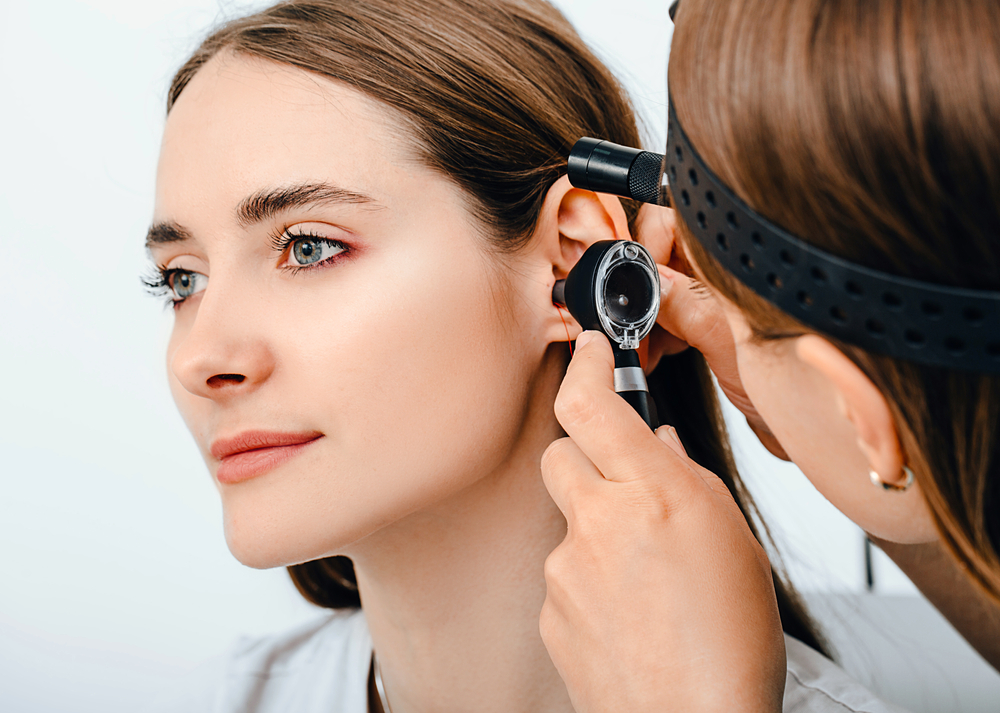Maintaining your hearing as you get older requires having your hearing checked regularly. If you have not had your hearing checked recently, and/or you are having trouble hearing what others are saying, it may be time to schedule an appointment with an audiologist. Access to a local audiologist at Penn Medicine Becker ENT and Allergy in Yardley, PA, means that you won’t have to travel far to find out why you can’t hear as well as you used to.
What Is Audiology?
Diagnosing hearing problems and providing solutions for better hearing is what an audiologist does. Audiologists are doctors who study, identify, treat and prevent hearing problems, balance issues, and disorders connected to the ears. Your ears are not only responsible for helping you to hear, they are what help you balance, walk upright, and protect you from getting too dizzy and falling over.
If you regularly experience issues with dizziness, you might want to see an audiologist to find out what’s going on in your inner ear. Fluid in the inner ear is necessary for signaling the brain that you are upright and balanced. If it’s off, you may experience vertigo or a number of other conditions. Some of these conditions are treatable while others are not.
If you have ringing in your ears or you don’t hear things as well as you once did, an audiologist can perform a series of tests to determine the probable cause. Audiologists also study hearing as it connects to learning speech. Children who haven’t learned to speak by a certain age may actually have a hearing problem and an audiologist can provide a diagnosis.

Causes of Hearing Loss
There are many causes of hearing loss, although the most common causes include old age and exposure to excessively loud noises. Other types of hearing loss can be related to these two causes, but they may also have other origins.
Ear doctors have a multitude of different tests they can use to determine the cause of a patient’s hearing loss. There are also three types of hearing loss into which all causes of hearing loss are categorized.
Conductive
Conductive hearing loss means that the sounds traveling to your ears aren’t quite making it all the way to your brain. This means that something in this complex system is not registering sound properly. Your ear doctor will look at all parts of your ears to see where the conduction of sound seems to be getting lost.
Sensorineural
This type of hearing loss involves the nerves and the brain. When everything else about your ears is normal, there appears to be something amiss with the auditory nerves and their connection to the brain. It can also be a brain-only issue, where the part of the brain that interprets sound is having problems translating the sounds to you.
Mixed
If you have both conductive and sensorineural hearing loss issues, it is generally classified as “mixed.” Missing part of an external ear or damage to your eardrum, along with auditory nerve damage is an example of mixed hearing loss. Some of this may be corrected or assisted with hearing technology like cochlear implants or hearing aids.
How an Audiologist Can Help
An ear doctor or hearing doctor can do different tests to see how your ears work. You’re probably already familiar with the headset test where the ear doctor places headphones over your ears and asks you to listen for tones in each ear.
Another kind of test has you sitting in a booth and asks you to look in the direction of the sound that is made when you hear it. The hearing doctor has a third in-office test that uses a handheld device with a canal probe that tests the auditory nerves for functionality.
If any of these tests reveal a problem, the audiologist might want to do more tests to confirm the suspected diagnosis. If none of the tests reveal anything, additional tests can be done under sedation in an outpatient procedure to examine the inner ear for problems. Once a diagnosis is made, the audiologist can provide you with treatment options to help restore some or all of your hearing when possible.
If your hearing cannot be restored at all (which happens with age or diseases of the inner ears and nerves), the ear doctor will discuss your options. Referrals to specialized programs and hearing or sign language experts may be necessary.
Hearing Test and Evaluation

A standard hearing test involves listening for tones in both ears. You raise your hand on the side where you hear the tone.
The tones gradually get softer and softer until it would be impossible for you to hear them at all. At this point, only someone with superpowers could hear the tones, so you shouldn’t feel bad if you can’t!
This is the most common and basic of all hearing tests. If any hearing loss is noted, your hearing doctor may want to test for nerve damage or try some other tests to see what the exact nature of your hearing loss is. Then, the hearing doctor will evaluate the results to provide you with either a diagnosis or a summary of your visit showing areas of concern if there are any.
How Hearing Aids Work
Should your hearing doctor determine that you need hearing aids, it helps to know how hearing aids work. For the most part, hearing aids typically all work the same. They take in sound through the ear canal, electronically process the sound, and then amplify the sound and/or extrapolate certain sounds to help you understand what you are hearing.
There are different types of hearing aids too. Some are BTE, or “behind the ear”, which include a microphone component that fits behind the ear and a transmitter/translator that fits inside the outer ear.
There are ITE hearing aids, which fit “inside the ear” and do not require a separate microphone outside the ear. Then there are the ITC, or “in the canal” hearing aids which fit entirely inside the ear and are practically invisible. These hearing aids are tiny but do all the work the other hearing aids already do.
Driving Directions From Nearby Locations
Yardley, PA is a very small town, but there are still points of interest worth seeing. If you live nearby or happen to be in town visiting the points of interest, you can find the audiology clinic at Penn Medicine Becker ENT and Allergy at 111 Floral Vale Blvd, SUITE A, Yardley, PA 19067-5522.
From Shady Brook Farm Farmer’s Market
- Head south on Stony Hill Rd toward Township Line Rd.
- Stay straight to go onto Township Line Rd.
- Turn left onto Floral Vale Blvd.
- Turn right to stay on Floral Vale Blvd. Pass through 1 roundabout.
- Arrive at our office.
Garden of Reflection, 9-11 Memorial
- Head west on Heather Cir toward Kenneth Ln.
- Turn right onto Kenneth Ln.
- Turn left onto Quarry Commons Dr.
- Take the 2nd left onto Creamery Rd.
- Turn right onto Yardley Newtown Rd/PA-332.
- Turn left onto Stony Hill Rd.
- Stay straight to go onto Township Line Rd.
- Turn left onto Floral Vale Blvd.
- Turn right to stay on Floral Vale Blvd. Pass through 1 roundabout.
- Arrive at our office.
Schedule Your Audiology Appointment Today
Visiting an audiology clinic isn’t always about hearing loss. It’s also about hearing loss prevention. Preserve your hearing and get an early diagnosis of hearing loss by scheduling an appointment with a Penn Medicine Becker ENT and Allergy audiologist in Yardley, PA today. Contact us at 267-399-4004, or use our contact form.

